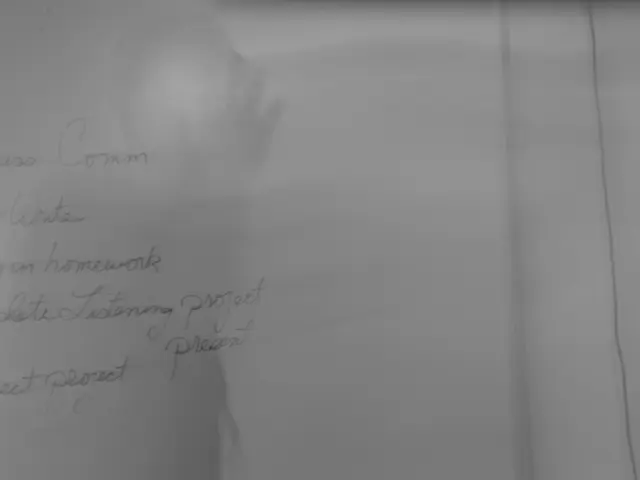Stuttgart's escape from the fate of Detroit's decline explained
Volksbank Stuttgart CEO Outlines Digital Transformation and Economic Vision
In the heart of Germany's automotive hub, Volksbank Stuttgart, the 23rd largest cooperative bank in the country, is navigating the digital age under the leadership of CEO Stefan Zeidler.
Zeidler, who joined the bank in July 2019, has positioned himself as a modernizer, driving forward the digital transformation of the institution since his appointment. This shift is evident in the bank's current annual expenditure of over 1 million euros on automation, with larger investments in artificial intelligence applications on the horizon.
Zeidler's vision for the bank's future is shaped by his roots. He began his career with Cannstatter Volksbank, one of the predecessor institutions of today's Volksbank Stuttgart, six years ago.
The Stuttgart region, like many industrial areas, faces structural challenges from its heavy reliance on automotive suppliers. However, Zeidler is optimistic about the region's future, particularly in the areas of mobility and digitalization. He sees 'mega opportunities' for the Stuttgart region in these sectors.
One such opportunity Zeidler is pursuing is the development of an 'aerospace cluster' in the region. This initiative aims to leverage the area's existing expertise and collaborate with the University of Stuttgart's Institute of Space Systems to strengthen the regional economy.
However, the road ahead is not without challenges. Zeidler predicts a longer lean spell for the Stuttgart region, with difficulties expected to last at least for the next two to three years. He expects insolvencies to rise by 10% to 15% year on year by 2025.
Despite these predictions, the robustness of local firms' balance sheets has so far prevented a wave of insolvencies. Equity ratios range from 25% to 40%, indicating a resilience in the face of economic adversity.
Yet, the bank is not immune to the financial stress faced by its corporate clients. Overdrafts, bounced direct debits, and repossessions are issues the bank is encountering among its corporate clients.
Despite these challenges, Zeidler remains hopeful. He believes the federal government must create a 'sense of a fresh start' and provide greater political reliability to stimulate economic growth. He also asserts that there will be no Detroit-like decline in the Stuttgart region.
Zeidler joined the management board of DZ Bank in 2013 before taking over as CEO of Volksbank Stuttgart. Balance-sheet risks for the bank remain contained, a testament to his strategic leadership.
As Volksbank Stuttgart continues to evolve in the digital age, Zeidler's vision for the bank and the Stuttgart region will undoubtedly shape its future. The bank is developing cautiously with total assets of 8.8 billion euros, a testament to its steady progress in the digital transformation.
In a region heavily reliant on the automotive industry, Zeidler's focus on mobility and digitalization, along with his vision for an 'aerospace cluster,' offers a promising path forward for Volksbank Stuttgart and the Stuttgart region.
Read also:
- Automobile manufacturer IM Motors reveals an extended-range powertrain akin to installing an internal combustion engine in a Tesla Model Y.
- Conflict Erupts Between Musk and Apple Over Apple Store's Neglect of Grok
- Partnership between MTN South Africa and SANTACO aims to advanced transportation systems and stimulate economic opportunities for the masses in South Africa.
- Rapid Construction of Rajasthan's 435 Megawatt Solar Power Plant in Eight Months Reduces Carbon Dioxide Emissions by Over 700,000 Tons








